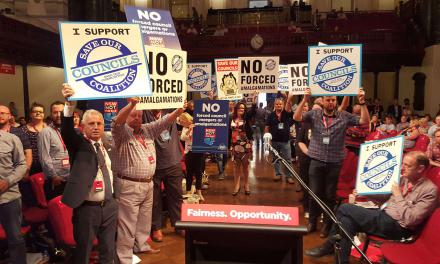MYTHS DISPELLED!
The United Services Union, your Union, refers to recent discussions and media reports regarding possible 9 Day Fortnight arrangements in the new Newcastle City Council Enterprise Agreement. The USU believes these recent media reports are misleading, ill-informed and lack the basic understanding of these arrangements.
The most recent EA survey of NCC staff, once again, outlined that the establishment of a 9 day fortnight was one of overwhelming interest to workers. Therefore, your Union felt this was an important area to campaign around and negotiate. The USU has also engaged with Council and the Enterprise Agreement Discussion Group on a number of other flexible working arrangements (such as “Flexi time”) for inclusion in the Enterprise Agreement, as we understand from the aforementioned survey, flexibility of working hours might not be a 9 day fortnight for every work area / group.
The United Services Union remains committed to expanding more flexible working arrangements through the EA process to improve your everyday working and personal life.
The USU believes there are numerous benefits of implementing a 9-Day fortnight arrangement and/or other flexible working arrangements which include the following:
- Improved workers wellbeing
- Lowering incidences of Sick Leave, which has been reported from other local Councils following the implementation of these schemes
- Higher productivity and efficiencies, for example, Plant Utilisation and less “start-up” “close down”
- Improved staff engagement / morale
- Cost saving in service delivery for vital community services
What is a 9 day Fortnight?
A 9 day fortnight is an extension of the current 19 day month arrangement, thus, meaning you would simply work your current 70 or 76 working hours over 9 days and have one rostered day off (RDO) each fortnight. This means that you will be required to work additional time each day (similar to 19 day month) which will be collectively taken on your RDO (each fortnight), therefore media reports stating Council workers would be less effective are inaccurate and flawed.
- For a 38 hour week employee this would equate to 8 hours and 26 minutes per day, for example working hours could be: 6:30am to 3.26pm (inclusive 30 minute meal break)
- For a 35 hour week employee this would equate to 7 hours and 47 minutes per day, for example working hours could be: 8.30am to 5.17pm (inclusive 1 hour meal break)
It is important to note that the introduction of a 9 day fortnight arrangements does not lower any current leave entitlements (such annual leave or sick leave), but merely provides more flexibility and an additional day each fortnight, for which employees will work additional time each day, to enjoy.
While the 9 day fortnight has been a focus in recent media reports, other options such as “flexi-time arrangements” have also been promoted during the Enterprise Agreement discussions. It is hopeful the Agreement will be resolved in the coming weeks, for further consultation and discussions with the collective USU membership.
Being collective gets results!
Not yet a current member of the USU? Action required:
How do I become a member of a united collective who will be my voice in the workplace?
Simply contact your local USU Delegate or USU Organiser Luke Hutchinson on 0419 761 323 / lhutchinson@usu.org.au OR join online here.




